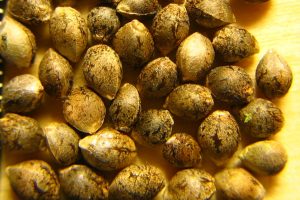
CBD-rich hempseed is legal now, but it’s also rare, giving plant breeders a huge new market as barriers to national hempseed distribution are removed.
The 2018 Farm Bill guarantees interstate commerce for all hemp products, removing requirements that viable hempseeds require approval from the U.S. Drug Enforcement Administration.
But the law leaves in place requirements in more than a dozen states around certified seeds – those that have been tested against germination and uniformity benchmarks and show low levels of THC.
Cannabis varieties that contain more than 0.3% THC remain illegal under the 2018 Farm Bill.
The variety is guaranteed to come in at roughly 6% CBD if grown from seed and higher if grown indoors.
“It’s a sales advantage to have the certification,” said Van Den Berg, owner of Mountain Flower Botanicals, which grows hemp on 66 acres and sells wholesale CBD extract.
“So many states want to see that certification. It takes some time to develop, but it’s going to be an advantage as the hemp market opens up and everybody’s wanting seed.”
Many hemp variants currently being grown are imported from the European Union – cultivars that are generally bred for fiber and seed production, not CBD-rich flowers.
Van Den Berg said time spent crafting a certified variety is worth it, because certified seeds guaranteed to produce those CBD-rich flowers are so rare that genetics could prove more profitable than selling hemp outright.
She spent eight hemp generations – more than two years – perfecting her variety.
Van Den Berg predicted a flood of low-CBD hemp varieties coming from the EU in the coming months.
“They have never grown for CBD over there. They don’t have strains over about 3% CBD,” she said.
“The fact is that a lot of seed is going to come in, but not a lot of seed good for CBD.”
Colorado now has 13 certified hemp cultivars, the most of any state.
The Farm Bill doesn’t address hemp farmers who have already been buying and selling hemp cultivars.
A West Virginia hemp farm was ordered to close last year after it was accused of illegally importing hempseeds from Kentucky; that case is pending.

